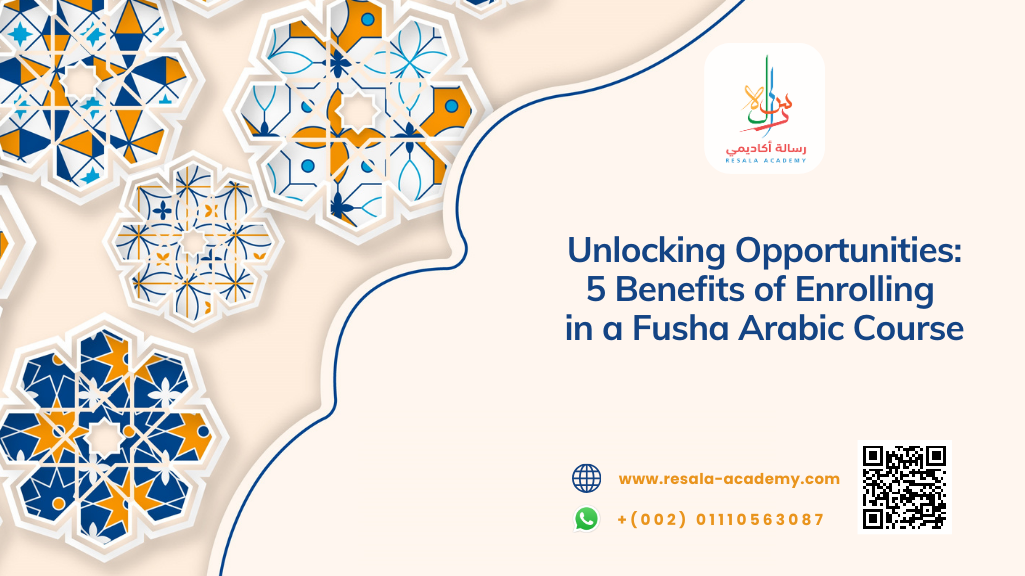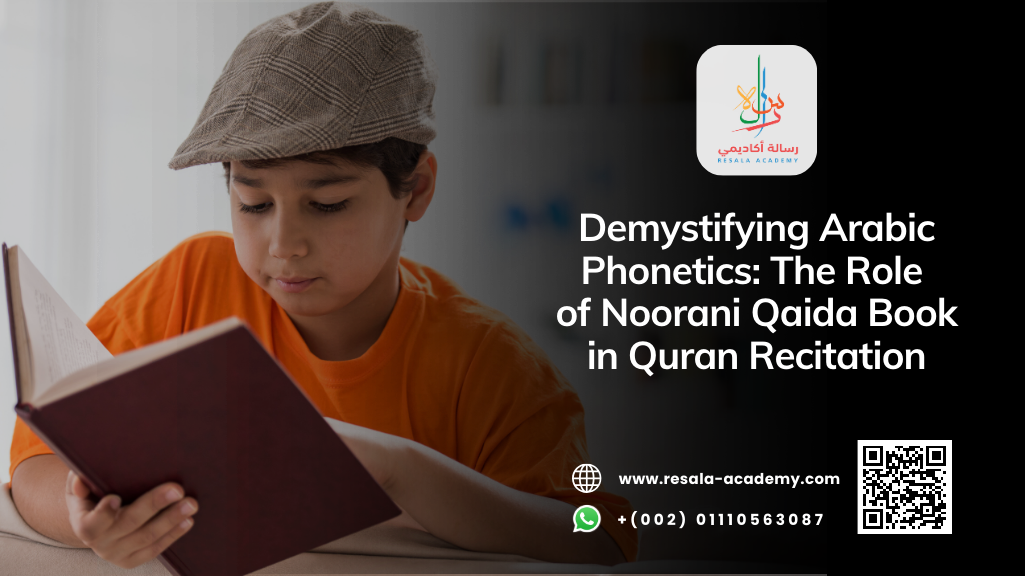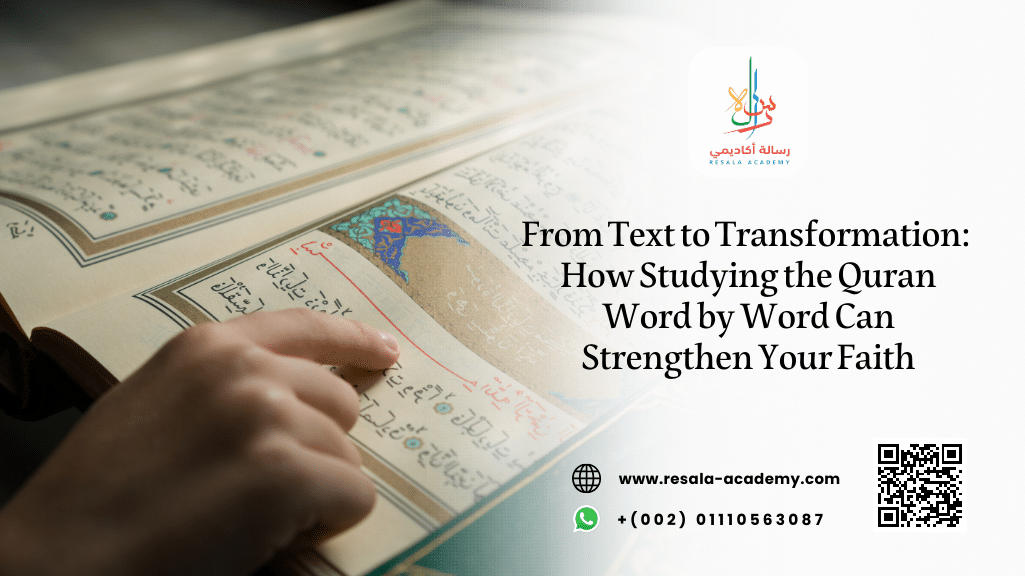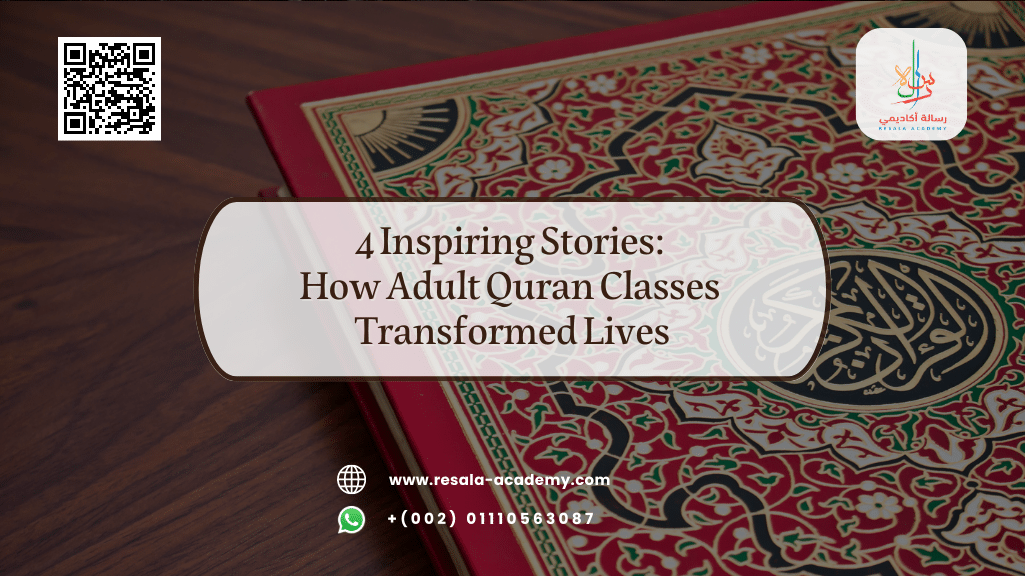Table of Contents
Unlocking Opportunities: 5 Benefits of Enrolling in a Fusha Arabic Course
Are you fascinated by the beauty and richness of the Arabic language? Do you dream of being able to read classical texts, understand Quranic verses, or communicate fluently with native speakers from different regions? If so, enrolling in a Fusha Arabic course could be your key to unlocking a world of opportunities.
Fusha Arabic, also known as Classical Arabic or Modern Standard Arabic (MSA), is the formal variant of the language that serves as a lingua franca across Arab countries. While colloquial dialects are widely spoken in everyday life, Fusha remains essential for academic, religious, and official purposes.
In this blog post, we will explore the benefits of enrolling in a Fusha Arabic course and how it can enhance your understanding and appreciation of this ancient language. So let’s dive in!
Understanding the Difference between Fusha Arabic and Modern Standard Arabic (MSA)
Fusha Arabic, also known as Classical Arabic or Quranic Arabic, is the form of the language that originated during the time of Prophet Muhammad. It is still used today for religious purposes and in formal contexts across the Arab world. On the other hand, Modern Standard Arabic (MSA) is a simplified version of Fusha that has been adapted for use in journalism, literature, education, and official communication.
The main difference between Fusha Arabic and MSA lies in their usage. While Fusha is primarily used for religious texts like the Quran and hadiths, MSA serves as a lingua franca for all Arab countries. This means that speakers of different dialects can understand each other when using MSA because it eliminates regional variations.
Another key distinction relates to vocabulary. Fusha contains archaic words and phrases which are not commonly used in everyday conversation or modern writing. In contrast, MSA incorporates more contemporary terms while maintaining its grammatical structure from Classical Arabic.
Furthermore, pronunciation differs between these two forms of Arabic. In Fusha, certain letters have distinct sounds compared to their pronunciation in colloquial dialects or even MSA itself. For example, some letters are pronounced with an emphatic sound which adds depth to words spoken in this manner.
Understanding both Fusha Arabic and MSA opens up opportunities to engage with various aspects of Arab culture including literature classics written centuries ago as well as contemporary news articles published across multiple Arab countries.
By grasping these differences between Fusha Arabian and Modern Standard Arabic (MSA), learners will gain valuable insights into how language evolves while simultaneously deepening their connection with Arab history and culture.
The Significance of Fusha Arabic in the Quran and Arabic Subtitles
Fusha Arabic, also known as Modern Standard Arabic (MSA), holds great significance in the Quran and Arabic subtitles. It is the standardized form of the language that is used in formal settings, such as literature, media, and religious texts like the Quran.
In the Quran, Fusha Arabic is considered sacred because it represents God’s message to humanity. Its precise grammar and vocabulary ensure that every word carries a specific meaning. By enrolling in a Fusha Arabic course, you can gain a deeper understanding of these divine words and connect with them at a profound level.
Arabic subtitles are widely used in movies and TV shows to make content accessible to Arab speakers around the world. Fusha Arabic is commonly chosen for these subtitles due to its universality across different dialects. By learning Fusha Arabic through a course, you will be able to read and comprehend these subtitles effortlessly.
One of the benefits of studying Fusha Arabic is that it allows you to bridge communication gaps between various dialects spoken across different Arab countries. While each country has its unique dialect, they all share commonalities with Fusha Arabic. Understanding this universal standard will enable you to communicate effectively with people from diverse backgrounds.
Furthermore, knowledge of Fusha Arabic opens up opportunities for career advancement. Many international organizations seek professionals who have expertise in this formal version of the language for translation or interpretation purposes. A course in Fusha Arabic can give you an edge over others when applying for jobs or seeking professional growth.
By exploring the significance of Fusha Arabian in religious contexts like Quranic studies or Islamic literature research enables individuals to delve into their faith at a deeper level while fostering greater cultural understanding within Arab communities worldwide.
Fusha Arabic and its Relation to Dialects
Fusha Arabic, also known as Modern Standard Arabic (MSA), forms the foundation for various Arabic dialects spoken across different regions. While dialects may differ in pronunciation, vocabulary, and grammar rules, they all share a common root in Fusha Arabic. Understanding the relationship between Fusha Arabic and dialects is crucial for anyone looking to learn or communicate effectively in the language.
1. Historical Significance:
Fusha Arabic originated from Classical Arabic, which was used during the pre-Islamic era and continues to have a profound influence on modern dialects. Learning Fusha allows learners to delve into the rich history of Arab culture and better understand its linguistic development.
2. Language Unification:
As a standardized form of Arabic understood by speakers across various countries, Fusha serves as a unifying factor among Arab nations. It enables individuals from diverse backgrounds to communicate effectively without being hindered by regional differences.
3. Formal Settings:
Fusha is commonly used in formal settings such as news broadcasts, literature, academic research papers, official speeches, and diplomatic communications. Enrolling in a Fusha course equips learners with the skills necessary for professional interactions within these contexts.
4. Enhanced Comprehension:
By studying Fusha Arabic alongside specific dialects that interest them most (such as Egyptian or Levantine), learners gain an advantage when it comes to understanding media content like movies or songs produced in those respective regions.
5. Paving the Way for Dialect Acquisition:
Since all dialects are rooted in Fusha Arabic, having a strong foundation can make it easier for learners to acquire specific regional variations later on if desired.
Exploring the 5 Benefits of Enrolling in a Fusha Arabic Course
Fusha Arabic, also known as Modern Standard Arabic, is the standardized form of the Arabic language used in media, literature, and formal settings across the Arab world. While many people may be more familiar with dialects of Arabic such as Egyptian or Levantine, learning Fusha Arabic can have many benefits. Here are five reasons why enrolling in a Fusha Arabic course can be beneficial:
1. Language Proficiency:
Enrolling in a Fusha Arabic course is an excellent way to enhance your language proficiency. With its focus on classical Arabic, this course equips you with the necessary skills to read and understand ancient texts, literature, and religious scriptures like the Quran. By learning Fusha Arabic, you will gain a deeper understanding of Arab culture and history.
2. Cultural Understanding:
One of the primary benefits of enrolling in a Fusha Arabic course is gaining insight into Arab traditions and customs. As you delve into classical Arabic literature, you will discover various cultural nuances that shape Arab society. This knowledge can be invaluable if you plan to travel or work in an Arab-speaking country or engage with individuals from these regions.
3. Career Advancement:
Learning Fusha Arabic can significantly boost your career prospects. With globalization on the rise, businesses are increasingly seeking individuals proficient in foreign languages such as Arabic. Being able to communicate effectively in Fusha opens up opportunities for careers in translation, international relations, journalism, or even diplomacy.
4. Enhanced Communication Skills:
Studying Fusha Arabic enhances your overall communication skills by improving vocabulary depth and grammar accuracy. The structure and complexity of classical Arabic make it a challenging yet rewarding language to master. Developing fluency in this form of communication allows you to express yourself more eloquently not only when speaking but also when writing.
5. Expanded Cultural Appreciation:
Enrolling in a Fusha Arabic course expands your cultural appreciation beyond just modern spoken dialects common today. By learning Fusha, you gain a deeper understanding of the historical roots and evolution of the Arabic language and culture. This can lead to a greater appreciation for the diverse cultural traditions, customs, and beliefs within the Arab world.
Resala Academy Offers Online Fusha Arabic Course
Resala Academy, a renowned language learning institution, is proud to offer an online Fusha Arabic course. With its expertise in teaching Arabic language courses, Resala Academy provides students with a comprehensive and convenient way to learn this prestigious form of Arabic.
In today’s digital age, online courses have become increasingly popular due to their flexibility and accessibility. The online Fusha Arabic course offered by Resala Academy allows students from all around the world to learn at their own pace and from the comfort of their own homes. This means that no matter where you are located or what your schedule may be like, you can still benefit from this valuable learning opportunity.
The curriculum of the Fusha Arabic course at Resala Academy is designed to cater to learners of all levels – whether you are a complete beginner or already have some knowledge of the language. Through interactive lessons, engaging exercises, and live sessions with experienced instructors, students will develop proficiency in reading, writing, speaking, and understanding Fusha Arabic.
One significant advantage of enrolling in an online Fusha Arabic course at Resala Academy is the personalized attention that each student receives. The small class sizes allow for individualized feedback and guidance from instructors who are native speakers themselves. This ensures that students receive proper instruction tailored to their specific needs and areas for improvement.
Furthermore, upon completion of the Fusha Arabic course at Resala Academy, students will receive a certificate recognized internationally as proof of their linguistic abilities. This certification can open doors for various opportunities such as career advancement or further academic pursuits.
Enrolling in an online Fusha Arabic course at Resala Academy not only offers convenience but also provides learners with valuable skills that can enhance personal growth and professional development. Whether you wish to deepen your understanding of Islamic texts or simply broaden your cultural horizons, this course will undoubtedly unlock new possibilities for you on your journey towards mastering this beautiful language.
FAQs
1. What is Fusha Arabic?
Fusha Arabic, also known as Classical Arabic or Quranic Arabic, is the standardized form of the Arabic language. It is derived from the language spoken during the time of Prophet Muhammad and has been preserved through written texts such as religious scriptures and classical literature.
2. How is Fusha Arabic different from Modern Standard Arabic (MSA)?
While both Fusha Arabic and MSA are forms of standardized Arabic, there are some differences between them. MSA is a simplified version used in modern media, education, and formal settings, whereas Fusha Arabic refers specifically to the classical form used in religious texts like the Quran.
3. Why is learning Fusha important for understanding the Quran and Arab subtitles?
Studying Fusha enables individuals to deeply comprehend Islamic teachings by directly interpreting verses from the Quran without relying solely on translations. Additionally, understanding Fusha helps with reading subtitles in movies or TV shows that often use more formal language closer to Classical or Modern Standard Arabic.
4. How does Fusha relate to different dialects of Arabic?
Fusha serves as a foundation upon which various regional dialects are built. By learning this standardized form first, learners can easily grasp other dialects since they share many common grammatical structures and vocabulary elements.
5. What benefits can I gain from enrolling in a Fusha course?
Enrolling in a Fusha course offers numerous advantages such as gaining a deeper appreciation for Islamic culture and heritage, developing better linguistic skills overall due to its complexity, enhancing career prospects including translation opportunities, or working within Middle Eastern organizations where knowledge of Classical/Standardized forms may be required.
Conclusion
Enrolling in a Fusha Arabic course can unlock countless opportunities for language learners. Whether you are interested in understanding the Quran on a deeper level, improving your Arabic subtitles, or expanding your knowledge of dialects, studying Fusha Arabic is an investment that will reap lifelong benefits.
By taking up a Fusha Arabic course at Resala Academy, you can experience all these advantages and more. Our online courses provide flexible learning options with expert instructors who are passionate about teaching this beautiful language. So why wait? Start your journey to mastering Fusha Arabic today and open doors to new cultural experiences and professional opportunities.
Remember, learning a new language requires dedication and practice. Embrace the challenges along the way and celebrate every milestone achieved. With perseverance and determination, you can become fluent in Fusha Arabic and connect with millions of people across the Arab world.
Don’t miss out on the chance to enrich your linguistic skills by enrolling in a Fusha Arabic course – it’s time to unlock those amazing opportunities!




